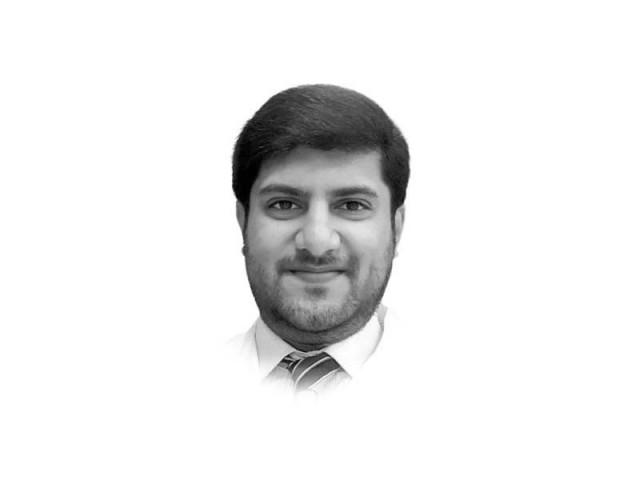Remembering Akbar Liaquat Ali Khan
He spent his enormous wealth in the struggle for Pakistan and donated generously for the new-born state

“All we have to do is play our part and make sure that’s always contributing towards the welfare of others rather than being solely self-serving,” said Akbar Sahab to me, as he reiterated what remained his staunchly-followed principle all his life, just days before he departed this temporal world.
Akbar Sahab — respectfully addressed as so by all and sundry — was younger of the two sons of Nawabzada Liaquat Ali Khan and Begum Ra’ana Liaquat Ali Khan.
With the demise of the immediate progeny of the Quaid-e-Millat — on November 30 in Karachi at the age of 81 — the last primary source of information about Pakistan’s First Prime Minister also vanished.
Akbar Sahab was always very warm and welcoming with the visitors — be they his near-ones or complete strangers. With me though, he was exceptionally kind and affectionate. My paternal great grandmother Bibi Zain-ul Fatima was the royalty of Arrah, Bihar who owned 60% of the state’s stake, and her husband, Syed Zahid Hussain, was a well-known Muslim League stalwart. Syed Zahid Hussain paid a dear price when he was held captive and forced to decide between going to Pakistan while leaving behind all his worthy possessions and staying back to enjoy the luxuries. Regardless, they opted for the newly-born Muslim State.
When I visited him, Akbar Sahab fondly recalled his golden memories of a cherished childhood he had under the patronage of a proud and selfless father.
“I fail to understand from where my father got so much of motivation and dedication that he sacrificed everything he had for the sake of Pakistan,” he told me of his father’s brimming devotion to Pakistan, himself overwhelmed with emotions.
It’s no secret that Liaquat Ali Khan, the Nawab of Karnal, inherited colossal wealth. He not only spent all the enormous wealth in the struggle for Pakistan but also donated generously for the new-born state. One such example is conferring his extortionate personal residence in New Delhi which now houses the Pakistan Embassy.
The Quaid-e-Millat has the strata which should be promoted globally for how people should live and die for a cause. All his sacrifices — including that of his life — are enough to have him mentioned as a notable revolutionary in human history, who not only struggled but also achieved what had been dreamt and advocated for, within his life span.
Mrs Akbar, sharing her knowledge in the context, said: “When Liaquat Ali Khan Sahab attended Oxford, he had personal staff at service, a chauffeur and a motorcade. From that high to when he was martyred while holding the Premier Office, he was found wearing a torn under-vest and left no wealth behind which could even support his family.”
Indeed “such a contribution is rare to see”, if described in the words of Akbar Sahab.
“The enthusiasm in almost every one at the time of the Partition was such that nobody cared about challenges or losses they may have to face at their new abode,” he recalled the passion he so vividly remembered even though he was just six when Pakistan was born.
Akbar Sahab was never short of fond memories of Quaid-e-Azam Muhammad Ali Jinnah too. Contrary to the perception, he shared with me, the Quaid was a very jolly person and also very friendly with children. Akbar Sahab’s elder brother, Ashraf, was a great fan of the Quaid for the exquisite shoes that he wore. Ashraf would try and imitate the Quaid’s great taste for footwear to catch his attention — at times with success.
Educated from abroad — Belmont Preparatory School and Mill Hill School in England, and King’s College, London — Akbar Sahab had a sophisticated personality. He was a successful businessman too.
He lamented what our dear Pakistan, achieved after colossal sacrifices, had been turned into. Disgruntled and dejected, he rued how the strong affinity to principles and deep commitment to education — that were the hallmarks of the nation back then — are now appallingly missing.
His biggest worry that would often sadden him was that “not only is the political elite, but also the public at large is uninterested towards national goals or social values — contrary to thoughts and practices of the founding fathers”.
Akbar Sahab and I shared mutual feelings when it came to ignorance as well as unworthy acknowledgment of the services and sacrifices rendered by his esteemed father along with the native Urdu speaking community which lost almost everything in the migration — as if made to pay for the creation of a separate homeland.
Akbar Sahab remembered his last interaction with his father till the last day of his life. He was 10 when one morning he insisted his dad not to leave, but was unfortunately denied by being replied, “I will be back in just two hours.” Akbar Sahab spent all his life for those two hours to finish. Alas, his wait is over!
Unfortunately, with the demise of Akbar Sahab, the nation has lost a strong symbol of association to its First Premier, which sadly was never recongised as deserved.
When asked by me how he saw the future of Pakistan, Akbar Sahab remarked, “It was made after very true sacrifices done purely with pious intentions. God shall never let those efforts go in vain.”
I hope and pray that we, as a nation, meet such expectations of our elders and that his words always come true.
Published in The Express Tribune, December 30th, 2022.
Like Opinion & Editorial on Facebook, follow @ETOpEd on Twitter to receive all updates on all our daily pieces.
















COMMENTS
Comments are moderated and generally will be posted if they are on-topic and not abusive.
For more information, please see our Comments FAQ